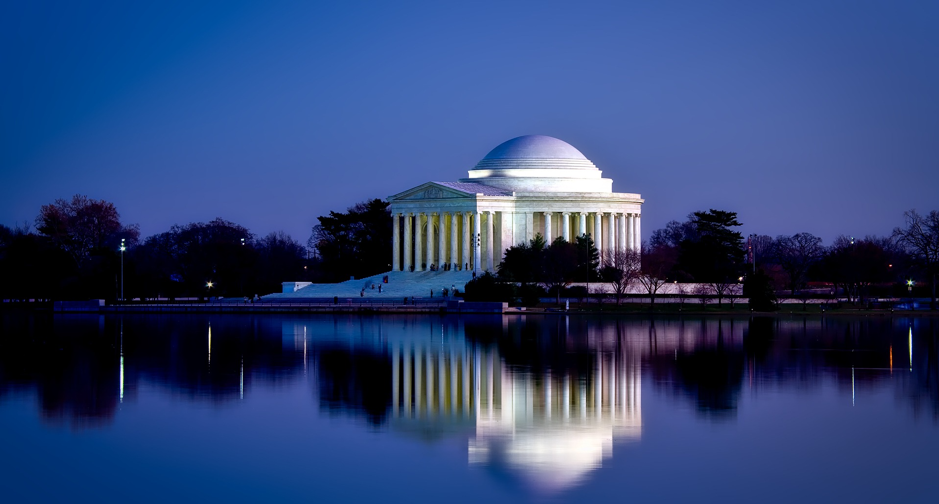
The Jefferson Memorial is a must-see on your next big visit to Washington DC. If historic sites interest you, make sure you check out our Washington DC Monuments and Memorials tours. The Jefferson Memorial is one of the most iconic sights in Washington, DC and this massive structure has a rich history. It was built in memory of Thomas Jefferson and the site was selected for its proximity to the White House. If this interests you, you should also read why history lovers must visit DC!
This complimentary structure was designed in 1935 by John Russel Pope, who was allocated $3 million for the project. It was President Franklin Roosevelt who pushed this project forward for approval in the previous year. He was a staunch supporter of Jefferson and felt that a memorial would be only fitting for the late president.
The architect put forward four different plans for the project, which were all placed on different sites. The commission in charge of the project selected the tidal basin site from the four because of its proximity to the White House.
Pope never lived to see the construction of the building, as he passed away before it began in 1938. The design came under fire from the Commission of Fine Arts once construction had been undertaken. They had many criticisms about the design and the site, which were echoed by some citizens. Originally, changes to design had appeased the body, but in 1939, they sent out a pamphlet opposing what the architect had chosen.
Construction still went forth despite these points, and additional sculptors were selected to craft a statue of Jefferson. The pantheon structure housed the statue and a number of other stone structures. During World War II, the demand for bronze was too high to justify using the metal for a statue, so the sculptors had to work with plaster, which was then painted to mimic bronze.
The area was completed on April 13th, 1943, which signified Jefferson’s 200th birthday. President Roosevelt dedicated the site as his influence was the main reason that a memorial was realized. An actual bronze statue was later added in 1947 after the war, completing the monument.
The site looks incredible as the tidal basin and natural surroundings add to the memorial. In 1912, this area was mass planted with cherry trees, which were a gift from Japan. Some of these were uprooted during the construction, which was another concern of the Commission of Fine Arts. They grew back in full force, however, and when these trees are in bloom the entire area is a spectacle.
Over two million people visit the Jefferson Memorial annually. One of the best ways to see it is on the DC After Dark Tour, as the structure looks particularly impressive when illuminated. The polished stone and statues within are lit from below from dusk to dawn and visitors are welcome to walk around the grounds.